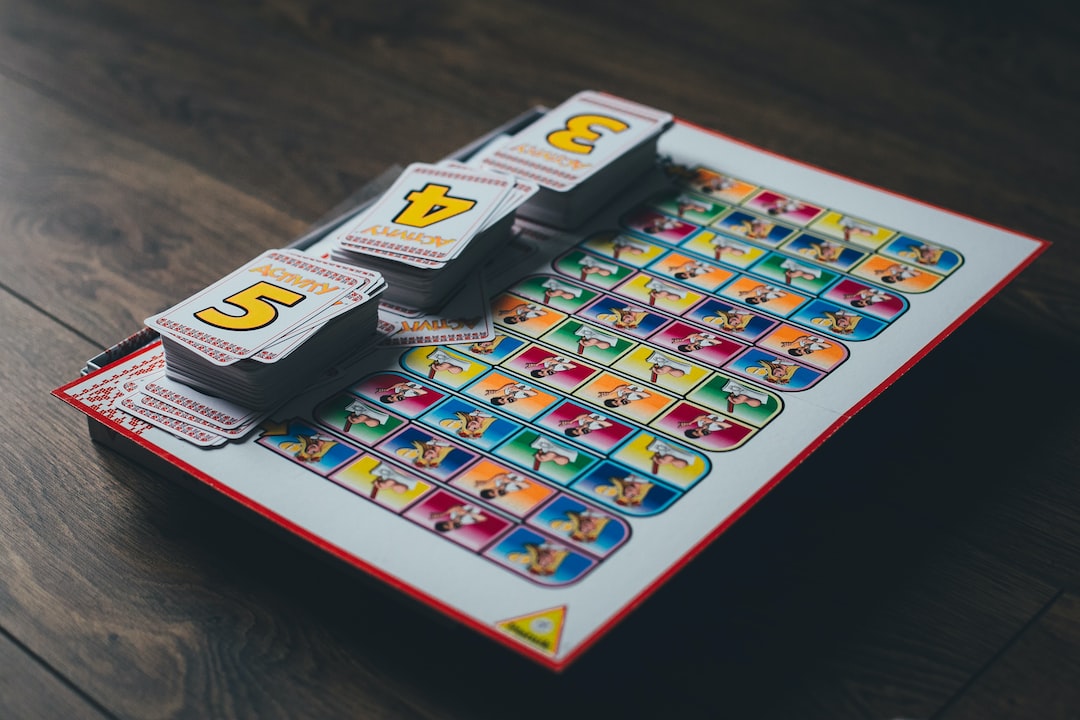The Origins of Classic Board Games
Board games have been a form of entertainment and intellectual stimulation for centuries. These timeless classics have brought joy, competition, and strategic thinking to people of all ages, transcending cultural and geographical boundaries. But have you ever wondered about the origins of these games? Where did they come from, and how did they evolve over time? In this blog post, we will delve into the fascinating history of some of the most beloved classic board games.
One of the oldest board games still played today is Chess, with origins dating back to ancient India. Originally known as Chaturanga, this game simulated an ancient Indian battle and was played on an 8×8 checkered board. Over the years, Chess spread across the world, evolving and adapting to fit different cultures. The rules evolved, and new strategies were developed, ultimately transforming Chess into the complex game we know today.
Another ancient board game that has stood the test of time is Go. Originating in China over 2,500 years ago, Go quickly gained popularity throughout East Asia. This abstract strategy game is played on a rectangular grid, with players taking turns placing stones on the intersections. The aim is to surround and capture your opponent’s stones. Despite its deceptively simple rules, Go requires deep concentration and strategic thinking, making it a favorite among intellectuals and enthusiasts alike.
Fast forward to the Middle Ages in Europe, and we find the birth of Backgammon. This two-player game mixes elements of luck and skill and was widely popular among the nobility of the time. Backgammon involves moving pieces around a board according to the roll of dice, with the goal of bringing all your pieces into your home board and then bearing them off. Even today, Backgammon remains a beloved game, often played in households and social gatherings.
In the late 19th century, a groundbreaking game emerged that would go on to become a household name: Monopoly. Contrary to popular belief, Monopoly wasn’t initially intended as a family game. Its origins can be traced back to a game called “The Landlord’s Game,” created by Elizabeth Magie in 1903. Magie’s game aimed to demonstrate the consequences of land monopolies, but it wasn’t until 1934, when Charles Darrow adapted the game and sold it to Parker Brothers, that Monopoly as we know it was born. Since then, Monopoly has become one of the most successful board games in history, allowing players to experience the thrill of buying, selling, and strategizing their way to victory.
Moving into the 20th century, Scrabble came onto the scene, captivating enthusiasts with its word-building challenges. First developed by Alfred Butts in the 1930s, the game initially struggled to find its footing until it was noticed by entrepreneur James Brunot. Brunot rebranded and relaunched the game under the name Scrabble, and it quickly gained popularity among word aficionados. To this day, Scrabble remains a staple in many households, encouraging players to exercise their linguistic prowess.
The advent of technology in the 21st century has brought about a resurgence in board games. One such example is Settlers of Catan, a game designed by Klaus Teuber in 1995. Catan revolutionized the world of Euro-style board games, introducing a rich resource-trading mechanism and a modular board that offered countless variations. Combining elements of strategy, luck, and negotiation, Catan quickly gained a loyal following and paved the way for a new era of modern board games.
From ancient battle simulations to word-building challenges and resource-trading adventures, classic board games have shaped human interaction and stimulated our intellect for centuries. These games provide a unique blend of entertainment, strategy, and friendly competition, allowing us to unplug from the digital world and engage with one another on a deeper level.
So, the next time you gather around a table to play a classic board game, take a moment to appreciate its rich history and the countless hours of joy it has brought to people throughout the ages. And who knows, you might even discover a new strategy or two, passed down through the generations, waiting to be unleashed.
